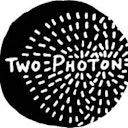
Produced in partnership with Two Photon
Listen to your parents when they tell you to tidy up: it's good for your brain
Neuroscience and psychology findings support the KonMari Method
Marie Kondo’s tidying technique (the KonMari Method) has taken the world by storm. In her book, The Life-Changing Magic of Tidying Up, and Netflix series, "Tidying Up With Marie Kondo," Kondo shares how to organize your home and keep only items that spark joy.
Her book and TV show have skyrocketed her into the spotlight. And Kondo’s guidance has helped families around the world transform their homes from cluttered to calm.
This transformation is more than magic — Kondo's techniques are backed by years of scientific research on the psychology of workflow and decision-making.

Cluttered environments can cause cluttered thoughts
A study published in 2013 found that people make more mistakes in a cluttered environment than in a clean one. Researchers invited students to come into their lab and complete a simple task: input data from a piece of paper into a computer. As each participant walked in, the lab was set up as either a messy or tidy work environment. The messy environment was filled with scattered items, while the tidy one had all items neatly tucked into place.
The students who worked in a cluttered environment made more mistakes than students in a tidy environment. This shows that messiness can impact accuracy, posing a problem for tasks like math problems, accounting, and paperwork.
However, before you toss all your office trinkets in the trash, there's more to a clutter-free space than meets the eye. Kondo's tidying technique specifically asks you to hold each item and ask, "Does this spark joy?" What sparks joy is unique to each individual, and there is no single "correct" way to tidy up.
Decades of scientific research supports this idea. How well you work in a messy or tidy space depends on your personality. A 2012 study found that high-sensation seekers (people who enjoy and seek out new experiences) liked working in a messy room more than low sensation seekers did. If you crave new and complex experiences, a traditionally tidy space may not be for you.

We make thousands of decisions each day
Decision fatigue is a popular term in the business world. Leaders like Steve Jobs, Barack Obama, and Mark Zuckerberg have claimed to reduce their wardrobe to a daily “uniform,” leaving their mental decision-making space for more important matters. This concept, also a key part of Kondo's strategy, is more than a self-help trope — it is backed by science.
The more decisions you make in a day, the lower-quality your decisions become. Judges make less forgiving decisions as the day progresses and journal editors are more likely to reject papers on a busy day. Constant decision-making can make you an irresponsible consumer by impairing deliberate, careful processing.
While these studies aren't perfect, they show that constant decision-making comes with a cost. If you wake up each morning and choose what to wear from a huge range of options, your ability to make responsible decisions is hindered as the day goes on.
Decluttering leaves you with fewer options to choose from, streamlining your routine and helping you choose wisely on a daily basis.
Let’s look at self-efficacy — our belief that we are competent, autonomous, and able to achieve our goals. People with high self-efficacy tend to feel in control of their lives and decisions. High self-efficacy boosts well-being, improves academic achievement, and motivates you to try new things.
The best way to improve our self-efficacy is to master a task. Success boosts self-efficacy, while failure lowers it. A study looking at student success showed that setting small, progressive goals and achieving them one by one improved self-efficacy.
The KonMari Method provides a framework of structured, step-by-step tasks to complete. Kondo asks you to declutter clothes, books, papers, komono (miscellaneous items), and sentimental items in that order. This offers structured, achievable steps that result in a clean home and a sense of accomplishment.

Science supports the idea that tidying can improve your life
Remember that a task must be completed to improve self-efficacy. Starting a task and leaving it incomplete can have the opposite effect — it can be detrimental to self-efficacy.
To remedy this, consider adapting Kondo's technique to fit your lifestyle. Rather than trying to declutter all your clothes at once and leaving a pile on your bedroom floor for weeks, you could plan for a smaller, weekly declutter each Sunday. By mastering your tidying goal each week, you can reap the benefits that come with higher self-efficacy.
Kondo’s tidying technique can improve your life — according to science. It can help you feel accomplished and in control. It can also help you make better and more accurate decisions. If you haven’t already, maybe it’s time to give tidying up a shot.



When Marie Kondo’s Netflix special came out, I wondered if there was a science behind the KonMari method. Thanks for looking into it Ive!
I’m curious: are there any studies out there that looked into the effects of folks using decluttering methods versus those who don’t in relation to decision fatigue?